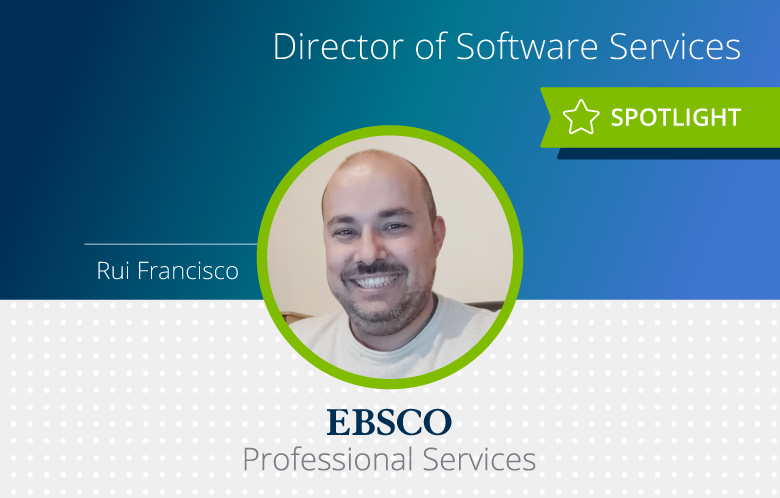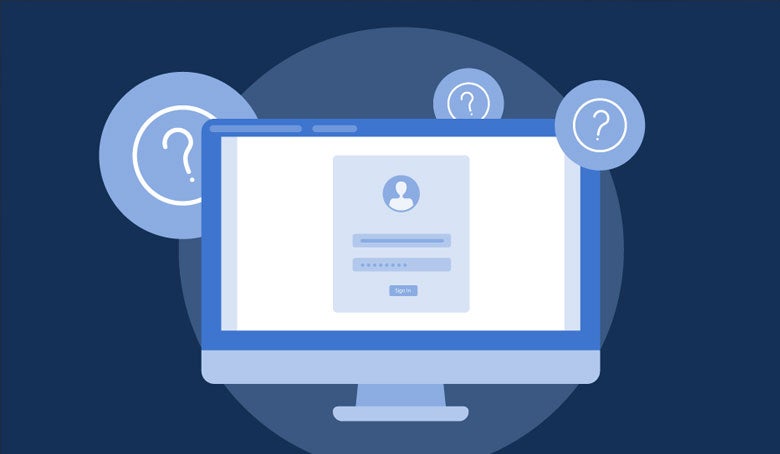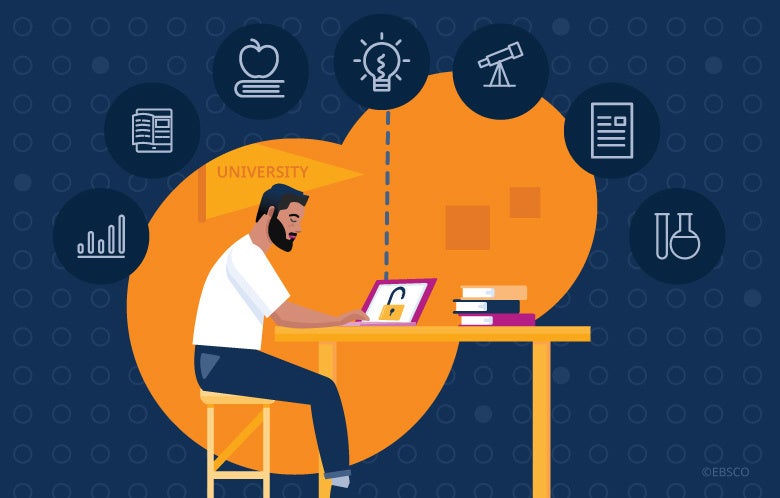Demand is growing for digital resources, where content needed to support classes, thesis work and research has to be provided digitally and made available to full-time remote users.
Libraries that already have remote access realize their systems are not scalable in capacity and/or have cumbersome processes to provide access to the community. Libraries that don’t have remote access face additional challenges and need guidance on how to implement remote access while saving time. Library budgets are also a concern, as some libraries do not have the funds to implement expensive new systems.
Recently, an EBSCO customer in Europe (medium-size library, about 5000 students) could not provide remote access services to patrons and did not have IT personnel to support a complete digital transformation. Patron information was stored in a student management system which served as an active directory for local systems. The student management system connection did not have standard connection (SAML, LDAP, etc.) and was only available as a REST API.
To help resolve these issues, the library director reached out to multiple providers and requested information on remote authentication systems which could provide statistics and would comply with local privacy regulations.
EBSCO’s Professional Services (PS) team made up of Library Service Engineers (LSE) acted as consultants to the library, sharing available remote solutions and the advantages/disadvantages of each one. The PS team is composed of highly-skilled personnel with backgrounds in engineering and/or librarianship who are in the same time zone as customers and speak the local language. These consultancy services are done in proximity to customers to understand the problem and propose the best solutions.
The project with the European customer was composed of multiple sessions to understand the library’s requirements and identify short, medium and long-term objectives. In the sessions, the PS team and the library agreed that OpenAthens was the clear choice to improve remote access. OpenAthens supports IP authentication and SAML based federated access to provide a personalized research experience through single sign-on (SSO) in a secure, simple, customized setup and management system.
OpenAthens offers integration with multiple active directories, provides APIs for streamlined user management and has the ability to pull library access statistics. It offers statistics at the user level and can break down data desired by the customer.
The PS team is composed of highly-skilled personnel with backgrounds in engineering and/or librarianship who are in the same time zone as customers and speak the local language.
The PS team is composed of highly-skilled personnel with backgrounds in engineering and/or librarianship who are in the same time zone as customers and speak the local language.
EBSCO’s Professional Services team analyzed the library’s requirements and proposed architecture with four main pillars:
- Integration with the existing system for user authentication to eliminate a manual feed to load users, providing immediate access to students and faculty researchers
- Secure communications were a top priority, as user information was going to be used to generate usage statistics
- GDPR compliance was adhered to, based on in the customer and EBSCO requirements
- Training on GDPR compliance to explain and educate the customer and technical teams on processes, data retention and patron rights
- Usage statistics were produced in real-time, generating data on access to resources based on patron attributes (e.g., faculty, degree, gender)
This process involved a series of meetings with different stakeholders, including the university IT department, student system provider and library staff. Meetings with library staff aimed to align implementation, with requirements and identify the best way to advise library management on the best practices and metric reporting.
The session with the student system provider aimed to retrieve information on available APIs and information that could be retrieved to connect the systems. Professional Services' role at this stage was to provide a communication bridge between technical personnel and library management. The session with the university’s IT department aimed to communicate the requirements of the library’s project, the security and privacy measures in place, access to the API and firewall permissions.
The development of the connector followed SDLC (Software Development Life Cycle) best practices and engaged library stakeholders in business acceptance tests. The PS team’s final report improved operation efficiencies and generated data-driven services for the library’s digital platforms. These efficiencies were obtained by automating the synchronization of users with the current student management system to import user attributes and define access permission in real-time.
Attribute mappings will enable the library to collect statistics, providing library management to make strategic, evidence-based decisions on their resources. The library now has information on who, how, where and when their services are used, and can use these insights to address needs and develop new services.



